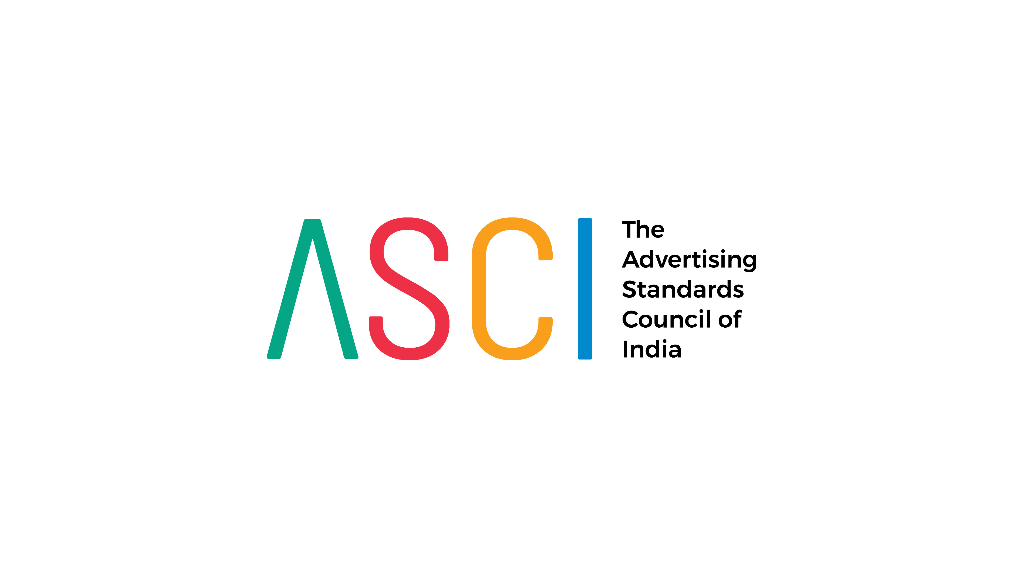ASCI’s EdNext study lays down a progressive and responsible approach to advertising for the EdTech industry

Mumbai, 11th January 2023: The Advertising Standards Council of India (ASCI) released a comprehensive report on advertising in the education technology sector (EdTech) and the impact it has on parents and students. The report aims to decode the challenges and opportunities for EdTech sector advertising. The report also identifies ways in which the sector can shape a more responsible narrative, and move away from opportunistic advertising which many consider problematic.
EdTech as a sector holds immense promise in being able to address the infrastructural and learning challenges in India, hence it is critical that the advertising of the sector does not undermine its potential. The study, done with the active participation of both industry and non-industry stakeholders identifies opportunities and challenges and proposes a framework that could guide advertisers to more balanced advertising.
The EdNext study was undertaken by ASCI with Sprint Studio.ai as the research partner and UNICEF as the knowledge partner. A total of 100 EdTech advertisements across print, TV, digital video and static mediums were analysed by a wide set of stakeholders including parents, students, policymakers, educationists, child development experts, as well as representatives of the industry from the marketing and creative fields. The study was conducted across the cities of Delhi, Bangalore, Indore, Kanpur, Patna, Kolhapur, Warangal and Bardhaman.
The analysis revealed that:
Ads have a huge impact on parents’ choice of EdTech platform, with 49% of parents choosing platforms based on advertising
Like traditional education ads, Ed-Tech ads too, have a huge focus on marks and ranks. Math and science dominated the subjects depicted
While 81% of parents trust EdTech ads, 73% felt that ads showed high pressure of studies
None of the endorsers/ role models were from the academic field
Stereotypes of gender, physical appearances, and mother’s roles crept in to these ads
The findings also noted some positives. Some of the key positives identified were:
Ads featuring parents represented them as supporting partners to students, and thereby provided positive role models for progressive parenting (21 out of 23 ads)
Parents and experts also felt that ads that focused on conceptual learning were progressive and enjoyable
The EdNext study proposed a framework to elevate the communication around EdTech mindfully. Titled ‘RAISE’, the framework provides stakeholders a set of lenses to evaluate the creatives and develop messages that could be considered more progressive. Following the checklist guide provided in the framework will help marketers and creative experts review concepts at the inception stage of the ad itself.
The framework is based on five principles which include:
R – Relationship of the student with learning
A – Authenticity of situations, promises and claims
I – Inclusive representation of characters to depict diversity in gender, age, physical attributes, personality types, learning styles and pace along with regional inclusion
S – Spectrum of pedagogy where there is information on learning methods and how they contribute to holistic learning outcomes
E – Excellence markers to focus on overall development as a measure of success over ranks and marks
Manisha Kapoor, CEO and Secretary General, ASCI, said: “EdTech has emerged as a very important sector in recent times, especially in the pandemic era where parents engaged with these companies to supplement their children’s education. Ed-Tech has the ability to solve some fundamental infrastructure and content challenges and revolutionize Indian education. However, given the particular asymmetry between vulnerable parents and students on the one hand, and large organizations on the other, it is critical to ensure that advertising is responsible and does not exploit these vulnerabilities. EdTech advertising has a massive opportunity to build a positive and future-facing narrative, which makes for compelling brand stories that also build confident and multifaceted learners.”
Mayank Kumar, Chair at Indian Ed-tech Consortium, and Co-founder UpGrad said: “The EdNext report shines light on the sheer scale of the EdTech sector and highlights the need for raising the bar on advertising in the industry along with providing a roadmap on how that can be achieved. The report also shows huge acceptance of the benefits of EdTech products by students, parents and teachers. The in-depth research we undertook along with ASCI will help the industry get a clear picture of how the sector can benefit through responsible advertising, which it is already constantly working towards.”
Divya Gokulnath, Co-chair at Indian Ed-tech Consortium and Co-Founder BYJU’S said: “The EdNext report highlights that almost all parents are appreciative of the ads which show children enjoying the process of learning, which is something we live by, work for, and showcase in our ads. We prioritize building strong and sustainable relationships based on first principles. While it’s natural for advertisers to highlight the best outcomes achieved by their users, the EdTech industry strives to present a balanced picture at all times. As a nascent industry that is constantly evolving, we must adapt in our effort so that we can make learning effective for everyone. This initiative by ASCI will help us design even more responsible and effective ad campaigns as we continue to grow and improve.”
About The Advertising Standards Council of India (ASCI)
The Advertising Standards Council of India (ASCI), established in 1985, is committed to the cause of self-regulation in advertising, ensuring the protection of consumer interests. ASCI seeks to ensure that advertisements conform to its Code for Self-Regulation, which requires advertisements to be legal, decent, honest, and truthful and not hazardous or harmful while observing fairness in competition. ASCI looks into complaints across ALL MEDIA such as Print, TV, Radio, hoardings, SMS, Emailers, Internet/website, product packaging, brochures, promotional material and point of sale material etc. In January 2017, the Supreme Court of India in its judgement affirmed and recognised the self-regulatory mechanism as an effective pre-emptive step to statutory provisions in the sphere of advertising content regulation for television and radio in India. ASCI’s role has been acclaimed by various Government bodies including The Department of Consumer Affairs (DoCA), Food Safety and Standards Authority of India (FSSAI), Ministry of AYUSH as well as the Ministry of Information and Broadcasting (MIB). MIB issued an advisory for a scroller providing ASCI’s WhatsApp for Business number 77100 12345, to be carried by all TV broadcasters for consumers to register their grievance against objectionable advertisements. On the international front, in 2021, ASCI CEO and Secretary General, Ms. Manisha Kapoor, was elected as one of the four Vice-President’s on the Executive Committee of the International Council on Ad Self-Regulation (ICAS). Among several awards bestowed by the European Advertising Standards Alliance (EASA), ASCI bagged a Gold Global Best Practice Award for the Mobile App “ASCIonline” (2016), a special recognition for its “Guidelines for Celebrities in Advertising” at the first-ever ‘Global Awards for Effective Advertising Self-Regulation’ hosted by the ICAS (2019). In 2021, ASCI also won two ICAS awards, one for the ASCI scroll telecast across television in the ‘Best Awareness Raising Initiative’ and for its extensive digital suo-moto monitoring through the NAMS initiative, in the ‘Special Category’. It also got a special mention in the ‘Best Sectoral Initiative’ category for its efforts and regulatory recognition of its Gaming Guidelines.





